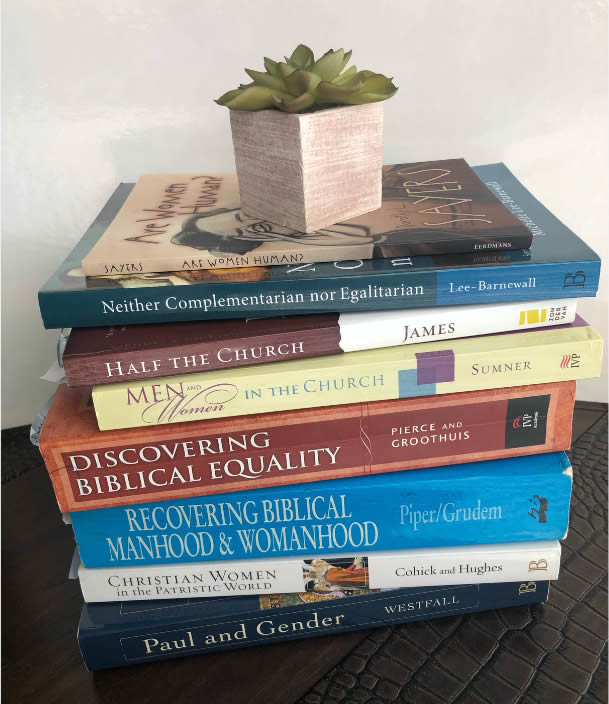Today’s QQ: What Does the Bible Say About the Final Say in Marriage?
Where should we go on date night? What extracurricular activities should our child participate in? Which toilet paper brand is preferable? Who will pay the bills? Week in and week out, husbands and wives must make many decisions. When they disagree, who has the final say?
In a recent sermon, megachurch pastor Josh Howerton instructed the women in his church that on a bride’s wedding night, she should “stand where he [husband] tells you to stand, wear what he tells you to wear, and do what he tells you to do.” Shortly after his sermon video was posted online, it went viral. Howerton has received serious pushback from men and women over his “instruction.” Let’s go to the Bible to see what it says about the final say in marriage.

Scriptures: 1 Corinthians 7:4–5
The NIV Bible translation of verses 4 and 5 reads:
The wife does not have authority [exousia] over her own body but yields it to her husband. In the same way, the husband does not have authority [exousia] over his own body but yields it to his wife. Do not deprive each other except perhaps by mutual consent and for a time, so that you may devote yourselves to prayer. Then come together again so that Satan will not tempt you because of your lack of self-control. (emphasis added).
Context: The apostle Paul wrote and sent this letter, known as 1 Corinthians, in response to problems the church in Corinth was experiencing. Two of the issues related to marriage: authority in marriage and sexual abstinence. Our focus is on the first of these.
Andrew Bartlett, author of Men and Women in Christ, explains that 1 Corinthians 7 has “the longest and most detailed piece of writing in the New Testament on the subject of men, women and marriage,” and contains the only “explicit statement about a husband’s authority over his wife.”
The Greek word for “authority” is exousia. In each version, Paul indicates that the wife and husband hold “authority” [exousia] over the other. In the first usage of “authority” [exousia], a husband has authority over his wife’s body. In the second usage (and unexpectedly to many readers), Paul describes the “authority” [exousia] of a wife over her husband’s body.
Which is it?
Is Paul describing a parallel of authority in which husband and wife mutually yield to one another?
Or is a wife’s authority limited in scope to the realm of intimate relations?
Scholars’ Views:
The crux of the matter is authority, and who holds it in marriage.
Egalitarians, who don’t believe in a hierarchy of a husband over a wife, see marriages functioning with mutuality and a consensual approach to decision-making.
Wives in many complementarian churches are taught that their husbands hold the authority in marriage and family decisions. However, complementarians hold a spectrum of views on this passage. Some couples, while holding a complementarian view of marriage, operate with a mutuality mindset.
Egalitarian Gordon Fee writes, “The mutuality argued for in 1 Corinthians 7:1–16 stands all by itself in the literature of the ancient world.” Philip Payne adds historical context: “Against a cultural backdrop where men were viewed as possessing their wives… It is hard to imagine how revolutionary it was for Paul to write in 7:4, “the husband does not have authority over his own body, but his wife does.”
Agreeing with the mutuality view, Ronald Pierce and Elisabeth Kay interpret 1 Corinthians 7 as “the fully inclusive complementarity that was intended when God first said of Adam, ‘It is not good for the man to be alone. I will make a helper corresponding to him.’”
Some complementarians argue for a hierarchy within marriage, while others do not. Claire Smith writes, “Paul’s comment about wives and husbands having authority in marriage isn’t a general statement about authority in marriage, but focuses on mutual sexual obligations in marriage…it is equal agency in view, rather than equal authority.”
John Piper and Wayne Grudem were asked, “Doesn’t [1 Corinthians 7:3–4] show that unilateral authority from the husband is wrong?” They answer, “Yes, but…” First, they address the potential misuse of these verses by “unloving men” bent on sexual exploitation instead of honoring and meeting a spouse’s needs. Next, they acknowledge a “mutuality and reciprocity running through this text,” but assert that a husband holds “general leadership in the marriage,” and express their preference for “the term leadership for the man’s special responsibility rather than authority [emphasis theirs].”Neither a complementarian nor an egalitarian, Bartlett concludes, “These verses in 1 Corinthians 7 are the only explicit guidance in the Bible on how decisions should be made in the marriage relationship.”
Key Takeaway 1:
A true understanding of sex is vital to marriage health.
Too many times wives have been taught that they owe sex to their husbands because his sexual “need” trumps her needs. Making love loses the beauty of the biblical “one flesh” vibe, toxically turning sex into a wifely duty regardless of her desire. In The Great Sex Rescue, author Sheila Gregoire notes “Evangelical culture has used frequency as the measure of marital and sexual satisfaction even though research has found that frequency is not an accurate predictor at all—even for men. Sexual satisfaction and interpersonal dynamics are far superior measures, as our survey also revealed.” Gregoire and her team have surveyed over twenty thousand women about their marriages, sex lives, and beliefs about marriage and sex.
Key Takeaway 2:
It’s now your turn to prayerfully consider if the Bible prescribes an exception (in the bedroom only) to a husband’s authority over his wife or an overall mutuality between spouses
Article Resources
Andrew Bartlett, Men and Women in Christ: Fresh Light from the Biblical Texts
Sue Edwards and Kelley Mathews, 40 Questions About Women in Ministry
Gordon Fee, “Male and Female in the New Creation, in Discovering Biblical Equality, 2nd ed.
Sheila Gregoire, The Great Sex Rescue: The Lies You’ve Been Taught and How to Recover What God Intended
Philip Payne, Man and Woman: One in Christ
Ronald W. Pierce and Elizabeth A. Kay, “Mutuality in Marriage and Singleness,” in Discovering Biblical Equality, 3rd ed.John Piper and Wayne Grudem, “An Overview of Central Concerns,” in Recovering Biblical Manhood and Womanhood
Until next time,

